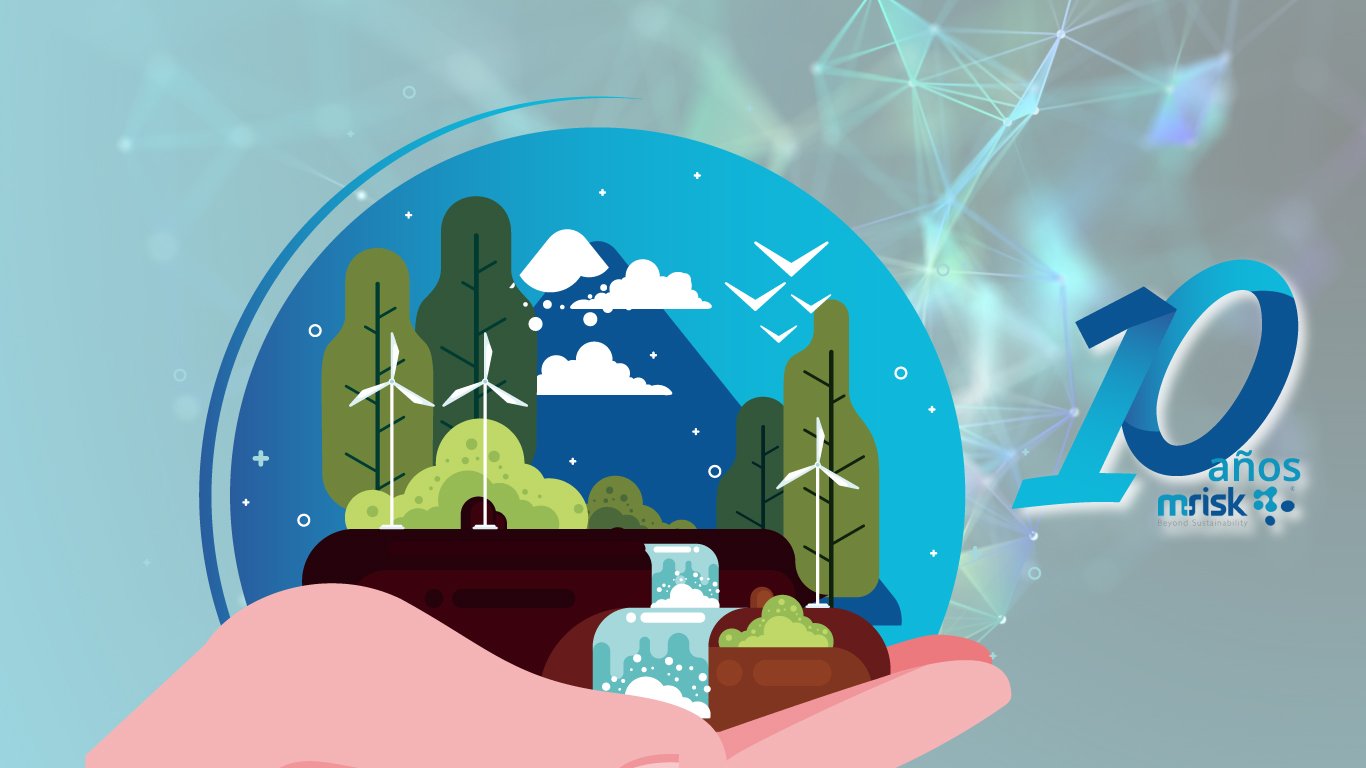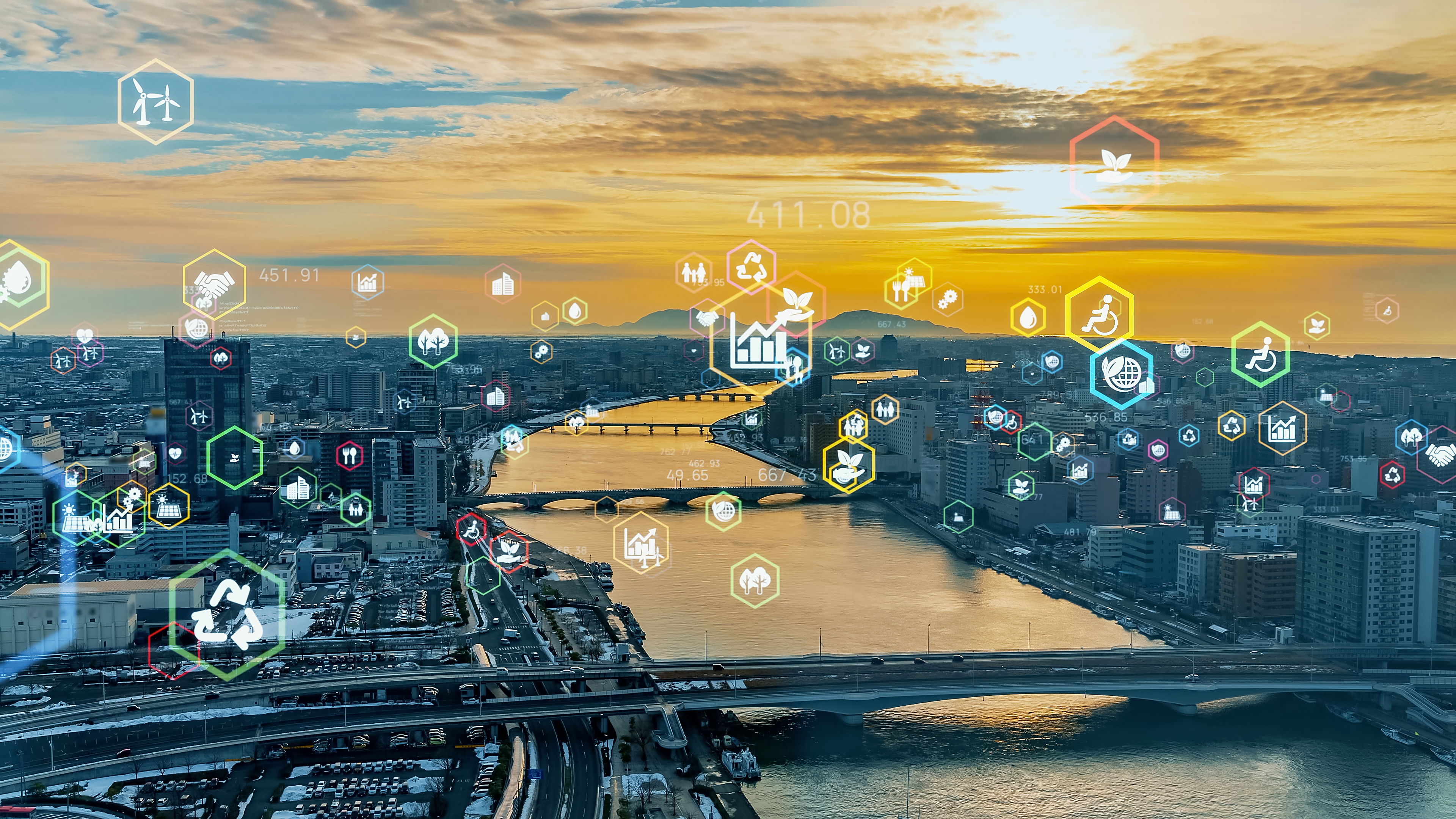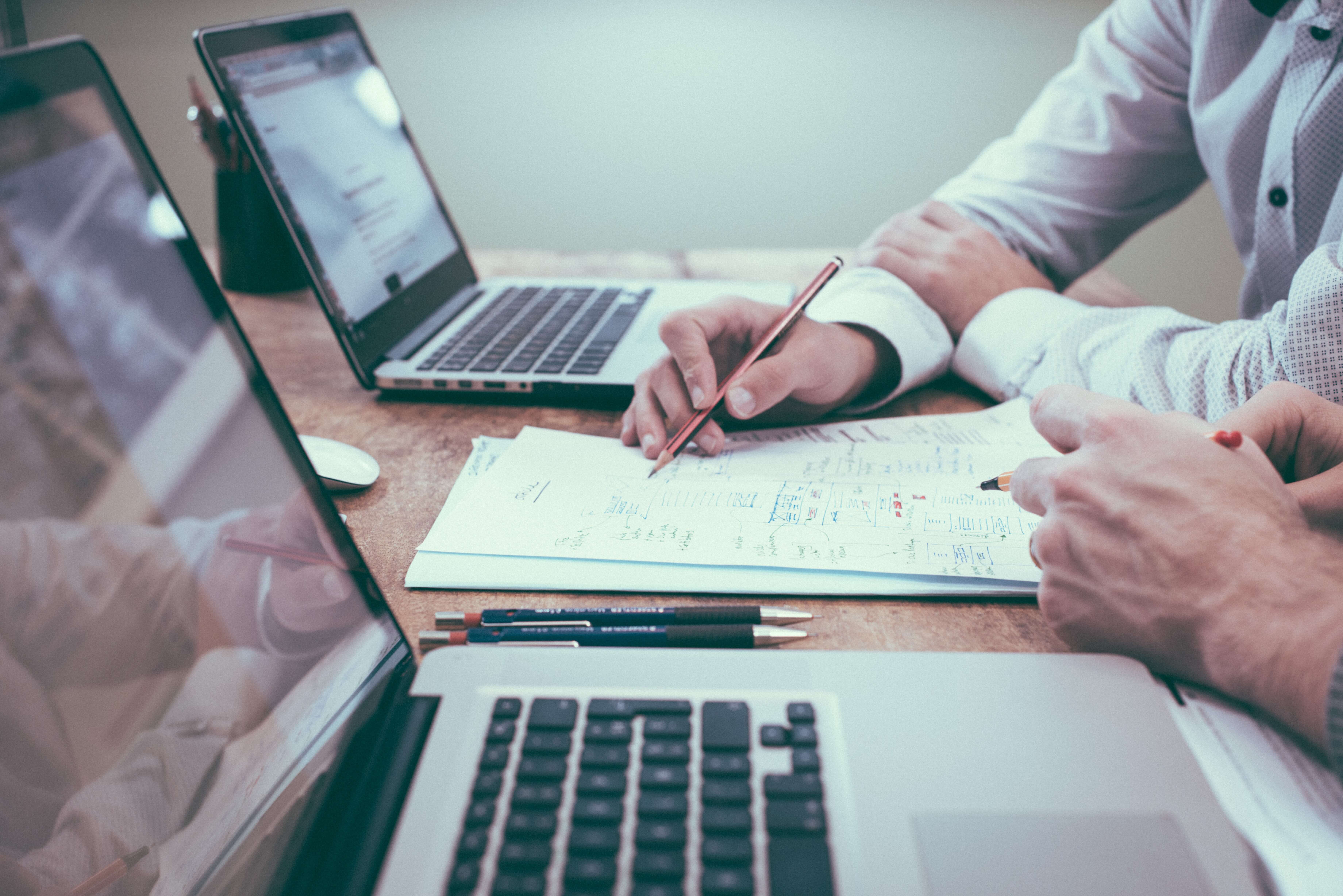The Evolution of Sustainability Over the Last 10 Years

In the international debate on future economic progress, the concept of sustainable development has become a central element. Our lifestyles and ways of doing business have changed rapidly. In these developments, and in the definition of new development models, the environmental component has become increasingly important.
At M-Risk we are commemorating ten years since we began our work promoting the incorporation of sustainability into our clients' business model, managing it through digital tools. It was undoubtedly a pioneering and innovative initiative from day one.
Our approach as an expert partner has allowed us to become a partner of our clients, working side by side in the continuous improvement and incorporation of best practices in our solutions.
This period has been challenging, of constant learning and full of rewarding experiences. In this evolution we have seen how our clients have become more sophisticated, managing, for example, to predict environmental events, providing valuable reaction and mitigation time. Likewise, knowing exactly what the interactions with the communities have been, the commitments assumed, and, in short, knowing the state of the relationship with the communities, has been a differentiating element for corporate reputation.
Everything has changed very quickly; today, talking about "environmental and social compliance, or community relations" is part of our daily lives. Financial reports have been transformed into Integrated Reports, which are the mechanism par excellence for companies to communicate their environmental, social, and economic performance to their stakeholders, in that order.
Sustainability at the heart of the business
Here we observe the first relevant changes in the leading companies: they incorporate sustainability as one of the strategic pillars of the company and it is part of the business model. Decision-making, resource allocation, and investment decisions not only consider it but also give significant weight to sustainability.
We are proud to be an important part of this process, where we are sometimes misunderstood, but we are convinced that it is the right path, the only one, and what ensures the long-term viability of companies. We will continue to convey our message day by day.
The digital transformation of sustainability is our thing, where we feel comfortable and where we generate value. Our solution, under the Software as a Service (SaaS) model, allows us to reach all of Latin America efficiently to offer the best value for money and value proposition. We adapt to the environmental commitments of each country, legal requirements, and community commitments.
"Sustainability is no longer something good to consider in companies; it is something you must have," explains M-Risk's chairman of the board, Juan Carlos Muñoz.
As business scenarios become more complex, it becomes necessary to add digital management tools to keep the balance under control. Some companies must manage more than 5,000 permits per year as a normal part of their business process. This involves the fact that they must manage a permit every twenty minutes; spreadsheets are simply not the right way to go; indeed, they amount to willful neglect.
Investors play a relevant role in this change process, as contributors do not want their funds to go to finance activities that generate significant negative impacts on the environment and the planet. The fight against climate change and decarbonization are processes that cannot be reversed. In BlackRock's 2020 Global Sustainable Investing Survey, investors were asked to rate their approach to E, S, and G today and in the future. 88% of global respondents rated Environment as the most focused priority today.
Growing together with our clients
M-Risk's solutions reflect best industry practices over the past ten years. With customers in the mining, energy, metallurgy, telecommunications, oil, and food, we have grown in tandem with the growing and changing needs of the various sectors. Our platform is an integral and transversal solution; we have the tools and the capacity to address the different sustainability issues, which clearly and radically differentiates us from other players in the region.
The issue is grave, just the effort to limit the global temperature increase to 1.5°C -the main sustainability challenge of our time- will drive a massive transformation of the world economy and will require investments totaling an estimated $100 to $150 trillion by 2050, according to Boston Consulting Group.
Making sustainability simple
Sustainable business management requires the right foundation that includes a strong governance system, new people and organizational skills, extensive data capabilities, and robust information analytics processes. The M-Risk platform is developed to be substantial support for these challenges.
We are passionate about accompanying Latin American companies on their path to sustainability. That is why we contribute to the construction of integrated company reports because we know that what is not measured is not improved. Centralizing all the information in a single platform is a safe and advantageous way to manage information.
"Sustainability transformation is going to lead value creation," says BCG in one of its communications, and the opportunities will be seized only by those who manage to understand and see this situation from a comprehensive ESG (Environmental, Social & Governance) point of view. Triple bottom-line management will be everything.
It is simple, shareholders, directors, and managers, we are all invited to this process, each one contributing their own in a consistent way, but only those who do things for real, with commitment, with robust, qualified teams of people with the necessary tools to play this game will persist. Spreadsheets do not play this time.
No more training and no more excuses.


